Half of children aren’t consistently being read to and it’s impacting more than just their education. Betty J. Mohlenbrock, M.Ed. is a Coronado local who has dedicated her life to promoting and facilitating the connection between children and loved ones through a shared reading experience, breaking barriers along the way.
Betty’s Background and Inspiration
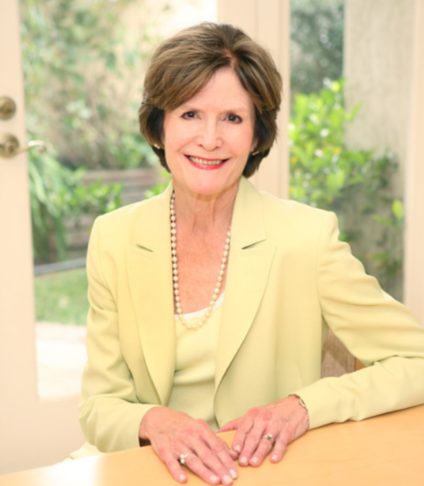
Betty was raised in a family of teachers and playfully blames them for her love of early education. “I taught third grade in my education career and have always loved children. It’s really more about children than about reading, but I did also major in reading as the important part of education. The foundation for children’s future success in education starts with reading.”
After earning her Master in Education, she had first-hand experience in the classroom. “I observed such a difference between children that had the wonderful experience of reading in the home with parents and other family members reading with them and those that had not. I knew universally, we as parents love our kids. It’s not that we intentionally are not reading to them. It is a known truth that this is such an important activity. It’s the single best predictor of a child’s their success in reading that we read aloud with them in the early years.”
Betty shares that she felt a calling beyond the classroom and began pursuing a vision that is still evolving. “The mission is to facilitate supportive relationships for children through family and friends reading aloud. The focus is on the bonding and the emotional benefit to children when we connect with them through stories.”
A Family Military Experience
Betty was inspired to create her first nonprofit, United Through Reading during her husband’s deployment. “He was in the Navy for six years as a flight surgeon and was deployed while our daughter turned two years of age. He was gone 10 months, and it was during the Vietnam era when there was no e-mail. When he returned, she didn’t even know him. That impacted me. I thought, ‘I know the military experience. Why not help military families read with their children using technology?’”
Her first program began during the first Persian Gulf War using technology. “It was on VHS. We sent home the recorded stories from at sea, or away on a military base. Family members could read stories to children at home and send the book with the video. That was the beginning.”
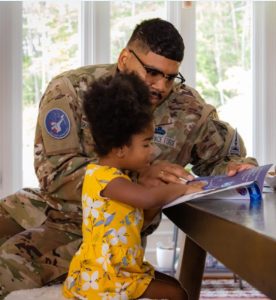
Expanding to Help More Families
Over the course of her growing the nonprofit, Betty tried many other ways to reach children that were experiencing challenges in family relationships- separations, dysfunction, whatever it may be. After 20 years with her efforts, she retired from United through Reading. She is proud that United Through Reading is still very successful worldwide and helping military families read together.
“Now, I am carrying this into other communities, other needs, other places, our children really may not be having this experience as much as they should. One of the big initiatives that we that we are doing at Reading Legacies is working with children of incarcerated parents. Again, addressing the difficult separation. This can be even more difficult than military separation because these families often don’t explain to the children where the parent is. It’s very confusing for children. We have found that in this program where we go inside jails and prisons and teach parents starting with the basics – you are the most important teacher and role model your child will ever have. By reading stories, even if you don’t read well, will begin that process.”
Starting Reading Legacies
After growing United Through Reading, the path to starting a new nonprofit was not what Betty had in mind as her next step. “When you’re the founder and you think something’s going really well, it’s time for you to turn it over to others. The board did a national search we found Dr. Sally Ann Zoll. We turned the leadership over to Sally and I retired, not realizing that really my work was not done.”
Betty explains that while she has a deep appreciation for the military, there were other families she wanted to connect. With United Through Reading’s focus on the military, she was ready to cast a bigger net and help more families. After a year of consulting, she put back on her founder hat and started building from scratch, again. “I realized that there was so much that had not been done, so many needs, so much potential. So, I started Reading Legacies 15 years ago and brought the programs that we had tried at United Through Reading that did not grow as quickly as our military program.”
Facing the Stigmas
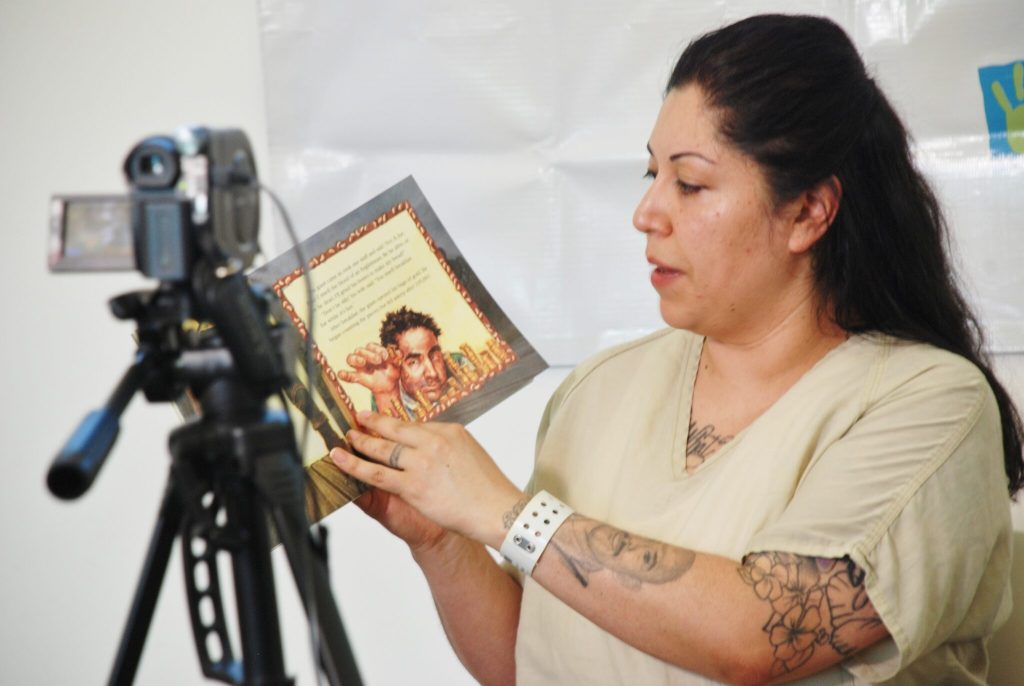
As with every new nonprofit, growth has been slow and steady. However, Betty finds a few obstacles in her path that weren’t present with her last organization. Betty says, “Many places and many people are not comfortable helping anyone that is incarcerated. We’re really not focused on the incarcerated person; we’re focused on the child – the victim in this situation that has done nothing wrong. Children need their parents. They need to know that they’re loved by these family members that are so important to them. By helping the parents, the grandparents, the brothers and sisters, aunts, uncles – whoever, these children are benefiting.”
She continues, “I think the challenges in terms of community support at Reading Legacies has been more difficult. At United through Reading, we had the community supporting military, the patriotic. I mean, rightfully so, whereas in this situation it’s been more of a marketing challenge to convince people that the children in these situations, they’re in poverty. We work a lot with families in poverty through various collaborations in Head Start and some social service agencies trying to reach children that are at risk of not having this experience.”
Reading and Technology, Better or Worse?
There are many reading statistics being tracked. One that Betty points out is that only 50% of children are regularly read to before kindergarten. She sees this more in the undereducated and low income communities, citing not a lack of caring but a lack of understanding.
“It’s really breaking habits and introducing new ones to engage with their children. Particularly now with so much distraction coming from technology and social media. All the ways young people are now engaging with less communication and connection to their families. We are starting with that foundational step.”
Betty laughs, “I’m not a technology person but I do think it is here to stay. It is a way to bridge a lot of challenges with families. Divorce, foster parents, there are a lot of ways we are branching into the future right now. We have seen such an amazing impact with incarceration and or addiction recovery, when parents and family members are still going through some kind of programming that limits their custody or their time with their children. Technology helps if you use it carefully and positively.”
Plans for 2025
Betty is moving forward, against the stigmas and finding success, albeit slower than she would like. “We have a lot of people and publishing companies at universities approaching us now. They realize that what we are doing is so foundational of our country. We have many new opportunities that are very exciting. We are looking forward to continuing the momentum and being a part of the solution. Children feel valued when you spend a few minutes with them and a book is a tool. Yes, they’re going to learn to love reading. But it’s the bridge, it’s a way to communicate with kids through good stories.”
What Reading Legacies Looks Like in Coronado
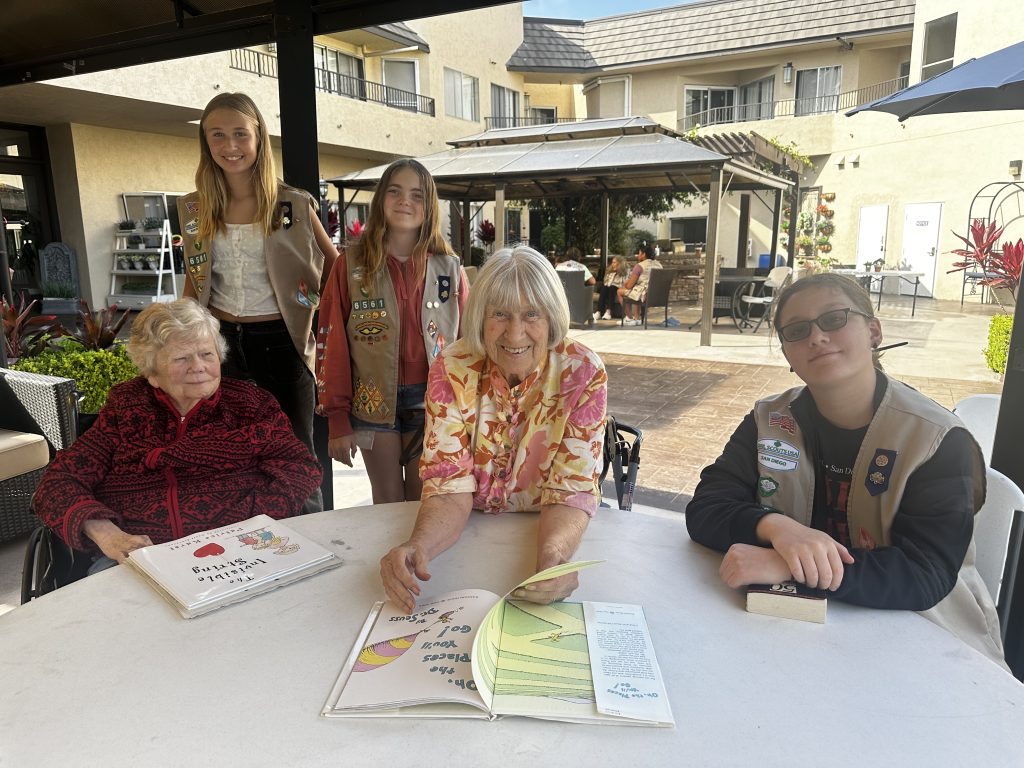
The demographic of Coronado is very different, but Betty emphasizes that reading and connection are universal. “We engage generational relationships through the activities in Coronado. Specifically, we are working at the Coronado Public Library. We’re inviting all ages to come in and have an opportunity to read a story on video. We then send that to the family encouraging them to use the library. It’s a collaboration.”
“Additionally, we’re working at the Coronado Retirement Village in a partnership with the Girl Scouts of Coronado. Young readers are enjoying spending time there. We’re sharing stories and the seniors love it. It’s an outreach county wide and hopefully nationwide to prioritize spending time with our children with the fundamental, emotionally beneficial experience of reading stories together.”
Intergenerational Shared Reading Experience
While the focus is on the child, Betty also points out the benefit to seniors. “They can contribute in a way that they would not be able to otherwise. We’re hoping to grow that into other retirement centers as well libraries from retirement homes.”
One retirement home partnership Reading Legacies has currently is at the Fredericka Manor retirement center in Chula Vista. For the seniors that do not have grandchildren to read to, many are interested in reading stories for children in general.
Betty expands, “we are providing those stories and videos, with the permission of the senior, into locations where children may be visiting or in shelters or locations where children need to hear stories read by people that care about them. Even if it is at a distance and through technology.”
Building a Legacy
Betty says, “As a grandparent myself, it’s reassuring to having a video like this. They’re going to be able to watch it after I’m gone. That’s something that they’ll have of me. I don’t want to be forgotten. It’s a legacy. We don’t have seniors read to feel that it’s their last statement or any such thing, but it is a way for them to have an impact that the whole family can enjoy forever.”
Holiday Gifts
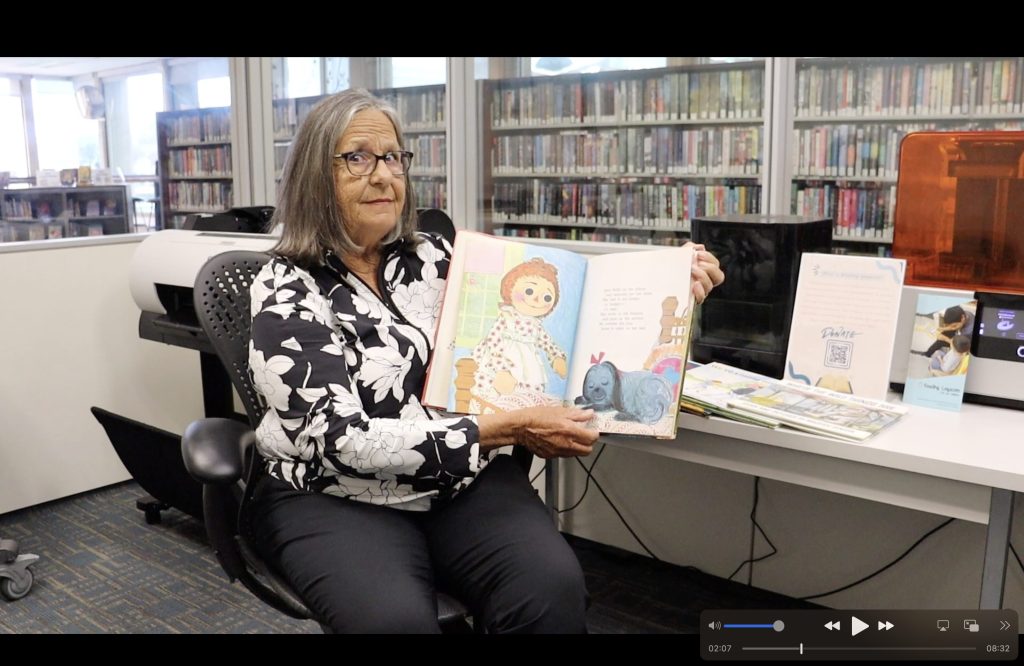
In addition to grandparents reading a story for their grandchild, Betty shares that the reverse is also just as memorable. “With the parents’ permission, kids can create a videotape story for the grandparent as a gift. It’s a way to send gifts from either generation of reading a favorite story and saying I love you. With the seniors, we encourage them to share some family memories. It becomes more than just reading words on a page. It becomes sharing your own memories, family stories, maybe they bring in books that have been read in the family.”
You can book a 30-minute time at the Coronado Library here for a reading. Spots are open twice a month, on the third Wednesday and fourth Saturday.
How You Can Help Reading Legacies Nonprofit
Reading Legacies was very grateful to receive $15,000 in Coronado grant fund distribution earlier this year. City Allocates $1 Million in Community Grant Funds. Betty says, “We are proud to be one of those recipients for the third year, it’s amazing and we’re so grateful. It’s great to have the publicity because it really is difficult to get the word out there.”
In addition to the grant, Reading Legacies is always accepting donations to stabilize the nonprofit.
Donate – Reading Legacies • Follow on Facebook




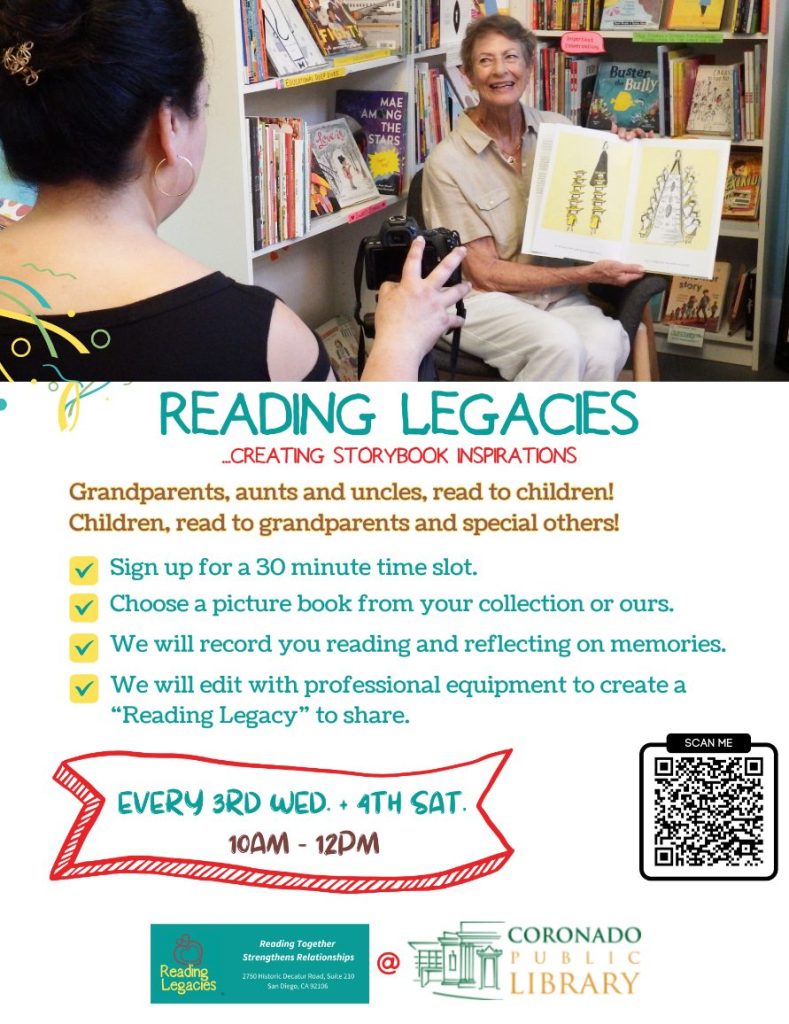

Great article. I was so amazed by the accomplishments of Betty and those who assisted with Reading Legacies and how the project evolved to not just helping military families but all families regardless of income or social position. I feel that Betty and her organization definitely made a difference in those lives that they touched.
Thank you Alyssa for presented this “real life” story.
Hi Peggy! We’re so grateful for support from the community to be able to continue to do this work and pursue our mission to strengthen relationships through reading together! If you haven’t already, please visit us at our website! We look forward to getting to know you!